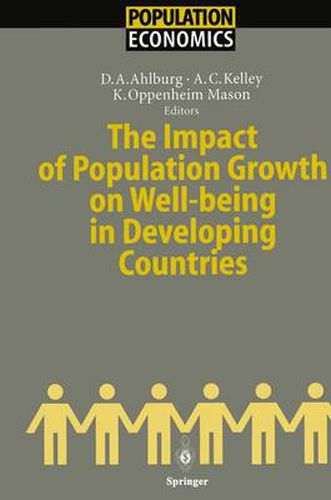Readings Newsletter
Become a Readings Member to make your shopping experience even easier.
Sign in or sign up for free!
You’re not far away from qualifying for FREE standard shipping within Australia
You’ve qualified for FREE standard shipping within Australia
The cart is loading…






This title is printed to order. This book may have been self-published. If so, we cannot guarantee the quality of the content. In the main most books will have gone through the editing process however some may not. We therefore suggest that you be aware of this before ordering this book. If in doubt check either the author or publisher’s details as we are unable to accept any returns unless they are faulty. Please contact us if you have any questions.
This book evaluates the evidence on the impacts of population growth on well-being in developing countries and concludes that slowing population growth from high current levels, especially in poor, agrarian societies facing pressure on land and resources, is advantageous to economic development, health, food availablitiy, housing, poverty, the environment, and possibly education. It also concludes that while other economic and social policies may affect one or a few of these components of well-being more directly, few, if any, are likely to have the breadth of impact of family planning programmes.
$9.00 standard shipping within Australia
FREE standard shipping within Australia for orders over $100.00
Express & International shipping calculated at checkout
This title is printed to order. This book may have been self-published. If so, we cannot guarantee the quality of the content. In the main most books will have gone through the editing process however some may not. We therefore suggest that you be aware of this before ordering this book. If in doubt check either the author or publisher’s details as we are unable to accept any returns unless they are faulty. Please contact us if you have any questions.
This book evaluates the evidence on the impacts of population growth on well-being in developing countries and concludes that slowing population growth from high current levels, especially in poor, agrarian societies facing pressure on land and resources, is advantageous to economic development, health, food availablitiy, housing, poverty, the environment, and possibly education. It also concludes that while other economic and social policies may affect one or a few of these components of well-being more directly, few, if any, are likely to have the breadth of impact of family planning programmes.